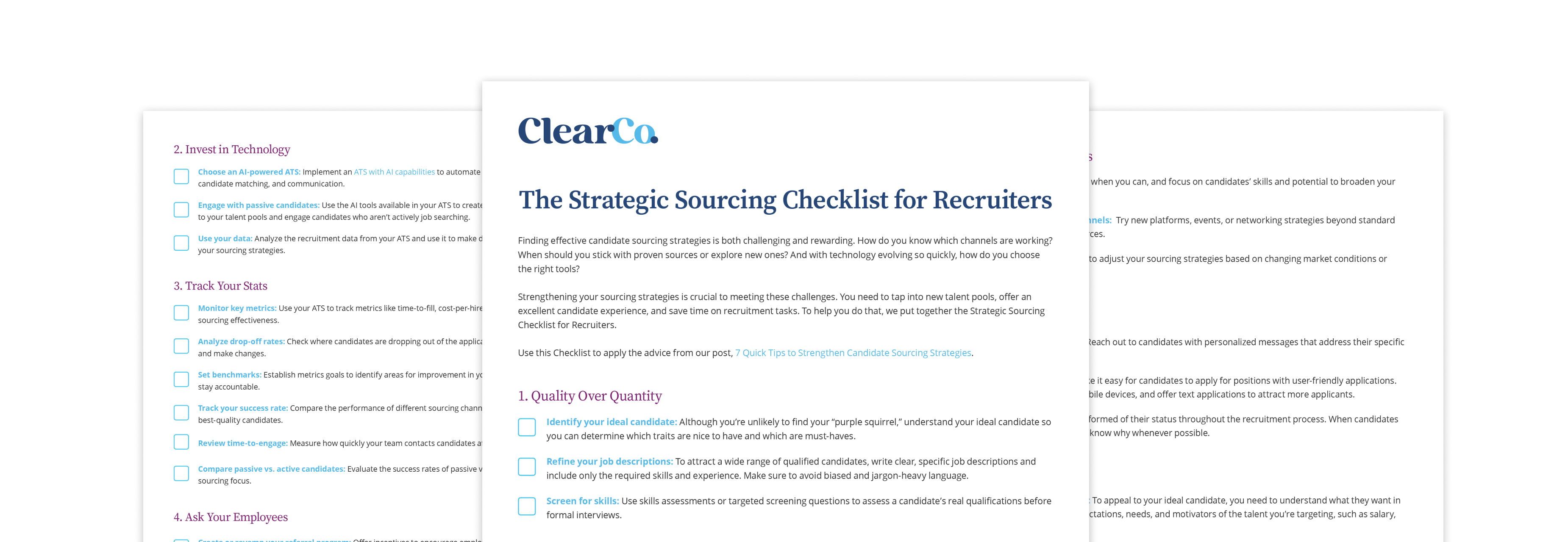This post on candidate skills was first published in December 2015. It was updated with new information in March 2025.
Big shifts in the hiring landscape are what we’ve come to expect, and there’s another that’s taking place now. We’re in a widespread “skills crisis” — 63% of HR professionals say there’s a mismatch between the skills job seekers have and those their companies need. On top of that, 39% of employees’ current skills are expected to transform or become outdated by 2030. As a result, many recruiting teams are weighing specific skills more heavily as they source and hire candidates.
While employees and job seekers lack technical skills and soft skills alike, 92% of companies agree that soft skills are just as important, if not more so. Across two million job listings, “communication skills” were the number-one request. Leadership, problem-solving, and adaptability were also in high demand.
Let’s take a look at the most sought-after soft skills in today’s job market. But first, find out why soft skills are so essential.
The Enduring Importance of Soft Skills
There’s no doubt that job candidates’ “hard” or technical skills are critical for many roles — if you’re recruiting software engineers, teachers, or diesel mechanics, some technical abilities are just non-negotiable. Artificial intelligence (AI) and other workplace tech advancements also mean some jobs require an entirely new set of hard skills.
But while the demand for technical expertise has grown, recruiters say it’s even more challenging to find candidates with the soft skills they need to succeed. Soft skills aren’t just positive personality traits that are good for individual performance. They have a positive effect on workplace relationships, the work environment, and team success.
“You can teach specific technical skills needed for a job, but if a new hire comes in on day one with some of these behavioral skills, teaching those technical skills becomes much easier, effective, and more fruitful,” said Tina Wang, division vice president of HR at ADP.
Finding candidates with the right soft skills can unlock their potential — and set them, and your business, up for long-term success.
5 Candidate Skills for 2025
Take a look at some of the most-wanted soft skills this year. Are your recruiters and hiring managers seeking new team members with these traits?
Unlock Candidate Sourcing Secrets
Streamline your candidate searches with our strategic sourcing checklist for recruiters.
1. Communication
“Communication is one of the most widely needed, transferable skills, relevant to almost every job and industry,” said LinkedIn career expert Catherine Fisher. Many of us work on remote or hybrid teams, our colleagues span five generations, and we’re using more technology than ever — all of which make effective communication an invaluable skill.
The better candidates are at conveying their ideas, the more solid team cohesion becomes. There are fewer misunderstandings, work gets done faster, and relationships among colleagues and clients are stronger. When hiring, look for candidates who can articulate their thoughts confidently and adapt their communication style to suit their audience.
2. Leadership
Leadership skills aren’t just important for managers. Employees with leadership skills tend to have a strong work ethic, take initiative, act as mentors, and motivate others. They have a natural ability to bring people together, help keep their teams focused through uncertain times, and make decisions under pressure.
Candidates with leadership skills show accountability and willingly step up to help their team members. Their inclusivity and collaboration help drive innovation and foster a positive work culture.
3. Teamwork
Your employees want to collaborate more — 65% say they want to be trained in teamwork skills. Team players are not only contributors in the workplace, but they respect diverse perspectives and often excel at conflict resolution. Hiring candidates who have the ability to work well with others helps bridge gaps between departments and increases innovation.
Beyond supporting good relationships at work, teamwork also involves negotiation, listening, and shared accountability. Look for these candidate qualities to hire employees who elevate results across the board.
4. Problem-solving
The ability to solve problems creatively shouldn’t be underestimated in today’s business world, where quick pivots and original solutions are a must. No matter what kinds of high-tech tools we use, there’s no replacement for human creativity and critical thinking.
Look for candidates with strong problem-solving skills to hire employees who will excel at analysis and originality. During interviews, you can ask candidates about a time they had to solve a problem fast. Their answer can also demonstrate their willingness to learn new strategies and methods, another beneficial quality in the workforce.
5. Adaptability
We all know the already fast pace of the business world is only accelerating, so it’s no surprise that adaptability is quickly rising through the ranks as an in-demand soft skill. We’re using lots of new technology, including AI, and business priorities often change — both of which can disrupt usual work processes and require new ones.
Candidates who are adaptable are valuable because they can learn new skills quickly and remain resilient when unexpected challenges arise. Prioritizing adaptability ensures your team stays agile and prepared for whatever the future holds.
Focusing on the candidate qualities that drive success is more critical than ever as we look for ways to close the skills gap and beat labor shortages. When you prioritize skills, you’ll find candidates who aren’t just qualified for the role — they’re equipped to thrive in the workplace of the future. Embrace this shift and ensure your team is built on the right mix of expertise and potential.
Don’t let outdated hiring practices hold you back. Upgrade your recruitment strategy today — source talent with the right skills in record time with ClearCompany’s AI-powered Applicant Tracking System. Find out more.


.png)
